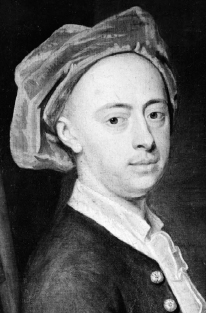Biography
George Frideric Handel (1685–1759)

Georg Friedrich Händel — he anglicized his name to George Frideric Handel after settling in England — was one of the few composers of early days who did not come from a family of musicians. His father was a barber-
From then on, it was an exciting, glamorous life. Still in his teens, Handel fought a duel with another Hamburg musician about which of them was to get top billing. In 1706 he journeyed to the homeland of opera and scored big successes in Venice, Florence, and Rome. Though he became a court musician for the elector of Hanover, in northern Germany, he kept requesting (and extending) leaves to pursue his career in London, a city that was then beginning to rival Paris as the world capital.
Here Handel continued to produce Italian operas, again with great success. He also wrote a flattering birthday ode for Queen Anne and some big pieces to celebrate a major peace treaty; for this he was awarded an annuity. In 1717, after the elector of Hanover had become George I of England, Handel got back into his good graces by composing music to be played in a royal celebration on barges on the River Thames. This famous Water Music consists of two suites for the Baroque festive orchestra.
As an opera composer, Handel had learned to gauge the taste of the public and also to flatter singers, writing music for them that showed off their voices to the best advantage. He now became an opera impresario — today we would call him a promoter — recruiting singers and negotiating their contracts, planning whole seasons of opera, and all the while composing the main attractions himself: an opera every year, on average, in the 1720s and 1730s. He also had to deal with backers — English aristocrats and wealthy merchants who supported his opera companies and persuaded their friends to take out subscriptions for boxes.
Handel made and lost several fortunes, but he always landed on his feet, even when Italian opera went out of style in Britain, for he never lost a feel for his audience. After opera had failed, he popularized oratorios — retellings of Bible stories (mostly from the Old Testament) in a half-
Handel was a big, vigorous man, hot-
Chief Works: Forty Italian operas, including Giulio Cesare (Julius Caesar) ◼ Near-
Encore: After Messiah, listen to Acis and Galatea; Concerto Grosso in B-
Image credit: Bettmann/CORBIS.